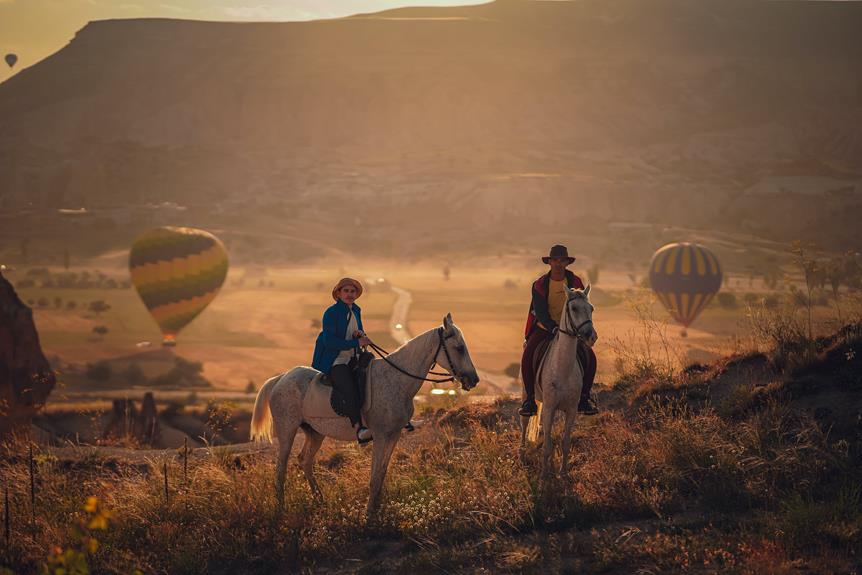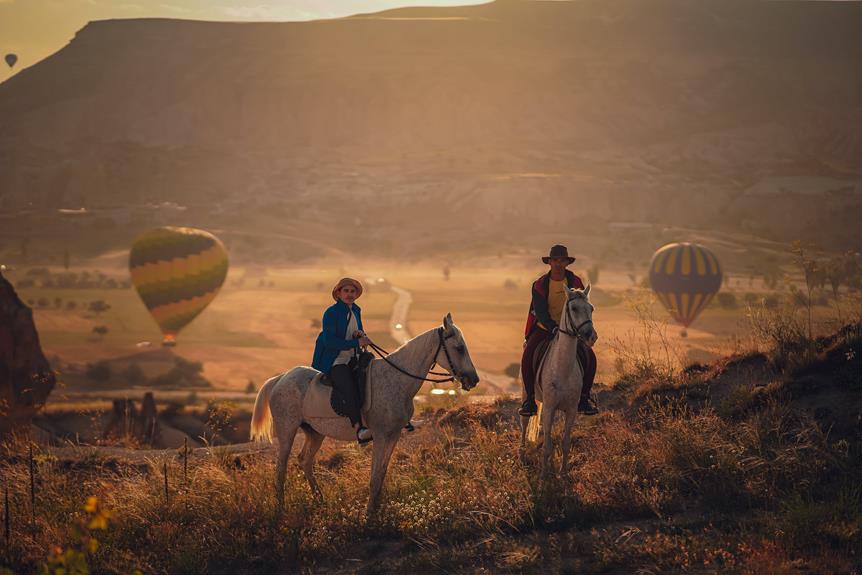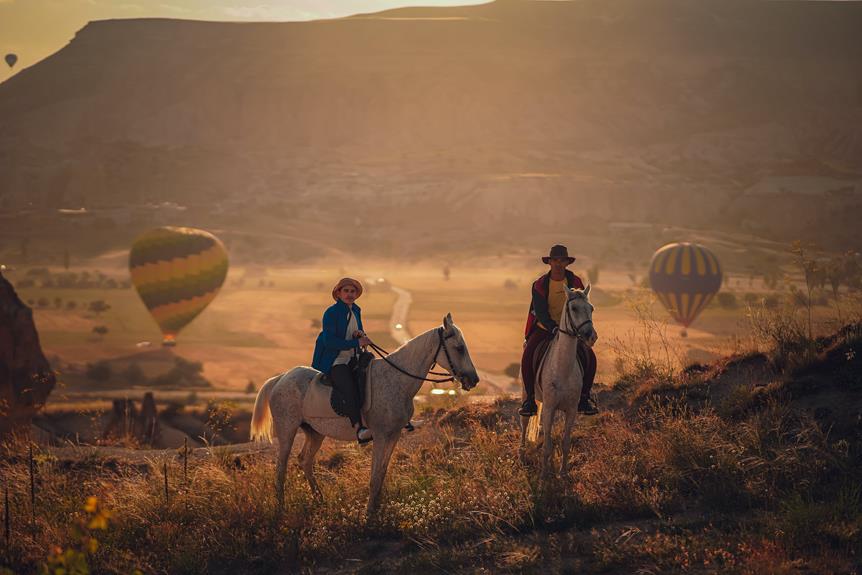So, you've found yourself in quite the predicament. Your horse, the majestic creature that it is, has decided that hay is simply not on the menu. How peculiar! But fear not, for there may be more to this puzzling phenomenon than meets the eye.
In this discussion, we will explore the various reasons why a horse might turn up its nose at hay, from simple picky eating to more serious health concerns.
Stay tuned, dear reader, for we shall unravel this hay-eating mystery together.
Key Takeaways
- Dental issues, change in appetite, picky eating behavior, and health issues can all contribute to a horse refusing to eat hay.
- Assessing the horse's overall health, including dental problems, gastrointestinal issues, changes in routine, parasite infestation, and metabolic disorders, is important in understanding why the horse won't eat hay.
- Adjusting the diet and introducing alternative forage options, such as different types of hay, soaked hay cubes, and chopped/bagged hay or complete senior feed, can help entice the horse to eat.
- Considering dental issues and seeking veterinary assistance, including regular dental check-ups, identifying signs of dental issues, consulting a veterinarian for a thorough dental assessment, and proactive dental care, is crucial in addressing hay refusal.
Common Reasons for Hay Refusal
If your horse won't eat hay, there are several common reasons that could be causing this refusal.
One potential factor is dental issues. As horses age, their teeth can become worn down or develop sharp points, making it difficult for them to chew hay properly. This can lead to discomfort and a decrease in appetite for hay.
Another reason for hay refusal could be a change in appetite or a picky eating behavior. Some horses may simply prefer the taste of grass over hay, or they may be experiencing digestive problems that make hay less appealing.
In addition, certain health issues such as gastric ulcers can also affect a horse's desire to eat hay.
It's important to consider these factors and consult with an equine nutritionist or veterinarian to determine the best course of action for your horse. They may recommend alternatives such as soaked hay cubes or pellets, chopped/bagged hay, or a complete senior feed with built-in forage.
Assessing the Horse's Overall Health
To properly address your horse's refusal to eat hay, it's important to assess their overall health. Several factors can impact a horse's appetite and indicate potential health concerns.
Dental problems, such as sharp points or missing teeth, can make it difficult for a horse to chew hay properly, leading them to refuse to eat. Gastrointestinal issues like ulcers or colic can cause discomfort and reduce appetite, indicating the need for medical attention.
Any changes in your horse's routine, exercise, or stabling conditions should also be assessed, as they can affect eating habits and overall health.
Parasite infestation is another factor to consider. These pesky creatures can lead to poor nutrient absorption and weight loss. It's crucial to regularly deworm your horse and monitor their health status.
Metabolic disorders, such as Cushing's disease or insulin resistance, can also affect a horse's metabolism and appetite. Managing these conditions carefully is vital for your horse's overall health and well-being.
Adjusting the Diet and Introducing Alternative Forage Options
Consider adjusting your horse's diet and introducing alternative forage options to address their refusal to eat hay. There could be various reasons why your horse isn't interested in hay, and it's important to explore different options to ensure they're getting the necessary nutrients.
Here are some suggestions to help entice your horse to eat:
- Evaluate the type and quality of hay: Experiment with different types of hay, such as grass hay or alfalfa hay, to see if your horse has a preference.
- Try soaked hay cubes: Soaking hay cubes in water can make them more palatable and easier to chew, which might be appealing to your horse.
- Assess dental and digestive issues: Dental problems or hindgut digestion issues can affect a horse's appetite. Consult with a veterinarian to rule out any underlying health issues.
- Consider environmental and social factors: Changes in the horse's environment, such as a new pasture mate or stressful conditions, can impact their feeding behavior. Evaluate these factors to see what might be affecting your horse's appetite.
Considering Dental Issues and Seeking Veterinary Assistance
Once you've evaluated the type and quality of hay and tried alternative forage options, it's important to consider dental issues and seek veterinary assistance if your horse continues to refuse hay. Dental problems can be a common cause of a horse's reluctance to eat hay. Signs such as dropping partially chewed hay, facial swelling, or difficulty in chewing can indicate dental issues that require veterinary attention. Consulting a veterinarian for a thorough dental examination is crucial in identifying and addressing any underlying problems affecting your horse's ability to consume hay.
Here is a table summarizing the importance of addressing dental issues and seeking veterinary assistance:
| Importance of Dental Care and Veterinary Assistance |
|---|
| Regular dental check-ups |
| Identification of dental problems |
| Diagnosis and treatment of dental issues |
| Proactive dental care |
Regular dental check-ups are essential for identifying and addressing dental issues in horses. If your horse stops eating hay and shows signs of dental problems, it is crucial to consult a veterinarian. They can diagnose and treat dental issues such as sharp points, hooks, or dental abnormalities that may impact your horse's ability to eat hay effectively. Proactive dental care, including routine floating of teeth, can help maintain proper dental health and ensure your horse's ability to consume hay. Remember, seeking veterinary assistance is essential for addressing dental issues and ensuring your horse's overall well-being.
Ensuring a Stress-Free Environment and Addressing Behavioral Factors
Creating a calm and comfortable environment for your horse is essential in addressing behavioral factors that may contribute to their refusal to eat hay. Horses are sensitive animals, and stress can significantly affect their appetite. Here are some important steps to ensure a stress-free environment and address behavioral factors:
- Provide a quiet and peaceful feeding area: Horses are more likely to eat when they feel safe and relaxed. Avoid loud noises or disturbances that may startle them and make the feeding area a peaceful retreat.
- Establish a consistent routine: Horses thrive on routine, so try to feed them at the same time every day. This will help them feel secure and develop a regular eating pattern.
- Offer hay in a clean and comfortable environment: Make sure the hay is fresh, clean, and free from mold or dust. Provide a comfortable and well-bedded area for your horse to eat, as discomfort can discourage them from eating.
- Encourage social interaction and mental stimulation: Horses are social animals and enjoy the company of other horses. Allow them to interact with their herd or provide them with toys and enrichment activities to keep their minds engaged.
Frequently Asked Questions
What to Do if Your Horse Doesn't Eat Hay?
If your horse won't eat hay, try alternative feed options like soaked hay cubes or pellets, and consider adding nutritional supplements. Evaluate dental issues, digestive disorders, and environmental factors that may affect palatability. Assess hay quality and storage for better feeding strategies.
How Do You Feed a Horse That Can't Eat Hay?
If your horse can't eat hay, consider alternative feed options such as soaked hay cubes or pellets, complete senior feed with built-in forage, or haylage alternatives. Nutritional supplements and pelleted feed options can also help meet their dietary needs.
How Long Can a Horse Go Without Eating Hay?
If your horse won't eat hay, there are nutritional alternatives to consider. Hay substitutes like chopped hay or soaked hay cubes can provide forage. Assess hay quality, address dental issues, and consult with a vet for feeding strategies and digestive health concerns.
Why Is My Horse Fussy With Hay?
Your horse may be fussy with hay due to hay preferences, dental issues, digestive disorders, or nutritional deficiencies. Other factors like environmental conditions, hay quality, feeding schedule, appetite stimulants, or hay soaking methods can also play a role. Consider hay alternatives.
Conclusion
In conclusion, when a horse refuses to eat hay, it's important to consider various factors such as hay quality, dental issues, picky eating behavior, and underlying health problems.
By assessing the horse's overall health, adjusting the diet, introducing alternative forage options, and seeking veterinary assistance if needed, we can address the issue and ensure the horse's well-being.
Creating a stress-free environment and addressing behavioral factors can also help improve the horse's appetite.



0 Comments